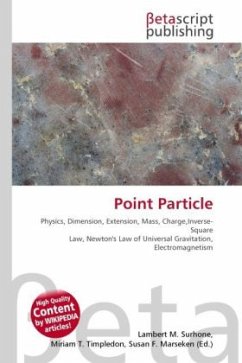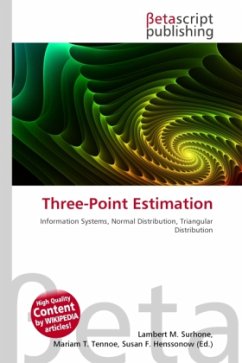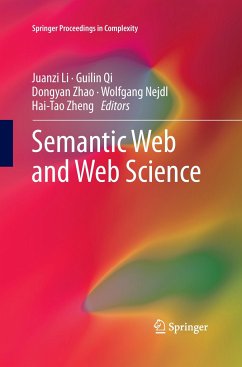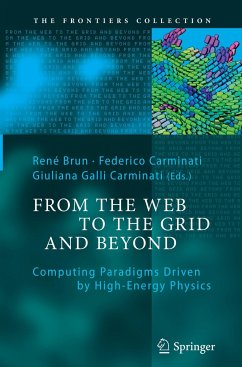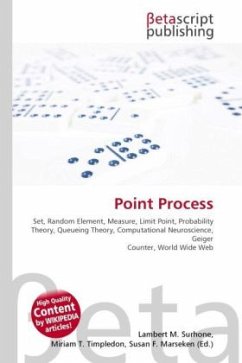
Point Process
Versandkostenfrei!
Versandfertig in 6-10 Tagen
23,99 €
inkl. MwSt.

PAYBACK Punkte
12 °P sammeln!
High Quality Content by WIKIPEDIA articles! In mathematics, a point process is a random element whose values are "point patterns" on a set S. While in the exact mathematical definition a point pattern is specified as a locally finite counting measure, it is sufficient for more applied purposes to think of a point pattern as a countable subset of S that has no limit points. Point processes are well studied objects in probability theory and a powerful tool in statistics for modeling and analyzing spatial data, which is of interest in such diverse disciplines as forestry, plant ecology, epidemiol...
High Quality Content by WIKIPEDIA articles! In mathematics, a point process is a random element whose values are "point patterns" on a set S. While in the exact mathematical definition a point pattern is specified as a locally finite counting measure, it is sufficient for more applied purposes to think of a point pattern as a countable subset of S that has no limit points. Point processes are well studied objects in probability theory and a powerful tool in statistics for modeling and analyzing spatial data, which is of interest in such diverse disciplines as forestry, plant ecology, epidemiology, geography, seismology, materials science, astronomy, and others. Point processes on the real line form an important special case that is particularly amenable to study because the different points are ordered in a natural way, and the whole point process can be described completely by the (random) intervals between the points. These point processes are frequently used as models for random events in time, such as the arrival of customers in a queue (queueing theory), of impulses in a neuron (computational neuroscience), particles in a Geiger counter, or of searches on the world-wide web.



